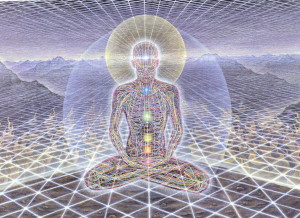meditation
now browsing by tag
Meditation and Leadership
Meditation and Leadership
Preamble
 Nearly four months in Asia Pacific Leadership Program course that provided me the realization of how important of self in supporting sustainable development. Three lessons mainly value the self which has full potential to impact the whole compounding society. In Leadership Seminar, the core idea was centralizing on individual’s motivation. Started its class with silent lesson inspired me very much to explore my inner strength and ability. Culture and diversity also emphasized the existence of self to extend to surrounding people, environment and culture through the prospects of respecting, tolerance and compassion. Visioning the future and personal action plan (PAP) also inspired self-centered, self-innovated, self-projected, and self-oriented. In Professional Development Leadership Seminar, it encouraged individuals to improve self-resume and curriculum vitae through self-experiences, community services and orientations. Egonet and networking classified self as the most important component to create networking effectively. By self-effort, self-intelligence, self-awareness and self-responsibility should bear fruits to success in exposing with other people and tasks. When we can create ourselves as a stable pole or a big island, there will be many people trust and want to take a hold or parking their journey. In Regional Core Issues, it has the concept that economics, politics, environment, culture, social formation and information are circle and spinning around the word “I.” “I” is the essence of these core issues. Bad or good originated from “I”. So how can we decorate “I”, “Self” or “Individual” to be more proactive and becoming essential milestone of success?
Nearly four months in Asia Pacific Leadership Program course that provided me the realization of how important of self in supporting sustainable development. Three lessons mainly value the self which has full potential to impact the whole compounding society. In Leadership Seminar, the core idea was centralizing on individual’s motivation. Started its class with silent lesson inspired me very much to explore my inner strength and ability. Culture and diversity also emphasized the existence of self to extend to surrounding people, environment and culture through the prospects of respecting, tolerance and compassion. Visioning the future and personal action plan (PAP) also inspired self-centered, self-innovated, self-projected, and self-oriented. In Professional Development Leadership Seminar, it encouraged individuals to improve self-resume and curriculum vitae through self-experiences, community services and orientations. Egonet and networking classified self as the most important component to create networking effectively. By self-effort, self-intelligence, self-awareness and self-responsibility should bear fruits to success in exposing with other people and tasks. When we can create ourselves as a stable pole or a big island, there will be many people trust and want to take a hold or parking their journey. In Regional Core Issues, it has the concept that economics, politics, environment, culture, social formation and information are circle and spinning around the word “I.” “I” is the essence of these core issues. Bad or good originated from “I”. So how can we decorate “I”, “Self” or “Individual” to be more proactive and becoming essential milestone of success?
Self and relationship with nature according to well-known scholars
Both Mechanical Universe of Isaac Newton and Quantum Mechanics of Albert Einstein have clarified that self or individual is very essential to respond to the whole society, world and universe under a certain natural law which called original interdependent or inner relativism. Buddha is the first researcher who found this theory and taught everybody about this inner relation and pointed out the way of middle path, self-savior and enlightenment.
Why meditation should be important to develop leadership?
When we discuss about self-savior or self-reliance; it must come from inner individual discovery through meditation practice. Good leader aims at those who can lead themselves, endure to serve others and initiate self-orientation. Richard Davidson, Neuroscientist of Wisconsin University has found that meditation is the important tool to develop happiness and other abilities especially leadership[i]. This factual statement inspires us to look inside and explore this tool together.
What is meditation?
Meditation is the method to explore self-strengths, peace, wisdom, compassion, motivation and innovation. Meditation doesn’t distinguish the practitioners by race, religions, language, traits or location. It is not the faith or belief but the discovery of self-enlightenment. It is not the spiritual rites, but it is the developing center of wisdom, compassion, dedication, commitment and leadership. There are two types of meditation: concentration meditation and insight meditation. Concentration meditation is the practice concerning the establishing of calmness, stillness and peace of the mind while Insight Meditation focuses on the cultivation of realization and knowledge.













